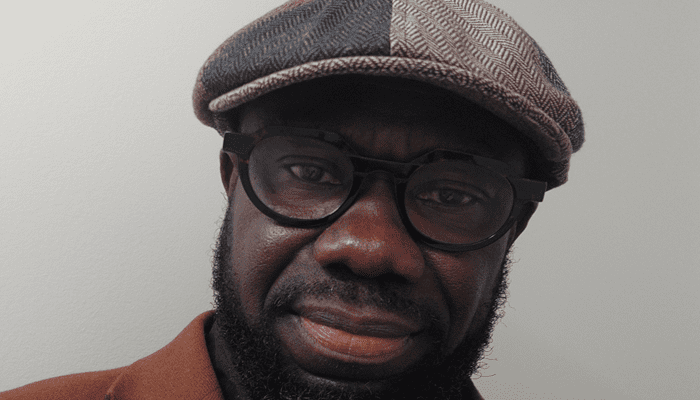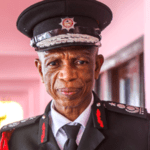Today, I also get to share my grass to riches story–in the league of billionaires and millionaires in Ghana, such as birthday boy Richard Nii Armah Quaye, Daniel Mckorley, Osei Kwame Despite and Ibrahim Mahama. Before you raise any query about how a bookish recluse and a greying newspaper columnist made millions, let’s visit the recent inspiring story from The New York Times about how an equally unassuming young lady also became a millionaire.
Not all of us steal from the poor.
Unusual people, unusual luck
Like many millionaires, Charlie Javice started small, founding a company after school in 2016 to help students through their application for federal student aid.
She named the start-up Frank and quickly became the go-to person for matters in her area of funding expertise, and even attracted interviews from the CNN while standing tall on the list of successful people under 30.
Business looked good; so did prospects. Soon, a big fish, JP Morgan, fell to the hook, offering to buy the start-up for $175Million.
To be ahead of the game, Javice, like all millionaires, was smart.
Together with Olivier Amar, her company’s growth and acquisitions officer, they cooked synthetic data to convince the investors that they had upwards of 4 Million students who would be ready clients for the bank.
But they had less than 300,000. Last week, Javice was found guilty in the federal court of three counts of fraud and one count of conspiracy to commit fraud, and now faces decades in prison.
You would always suspect that those who become rich must have done something unusual to be ahead of all of us.
Aye, mostly they did unusual things but they will never tell you exactly what they did.
And when they tell you, their fantastic tales make you feel very stupid for making your impressionable ears available for their stories.
You wonder how an average mind would see a business opportunity in banana leaves, pack three bags for the marketplace and suddenly reap millions.
What do rich people see that the rest of us are blinded to?
In another case, a millionaire told us he sold apoofee (periwinkles). The other sold kerosine in bottles.
Ice kenkey millions
Unlike the fanciful tales that millionaires and billionaires have told us about how they became rich, I did not start poor. I was born into a very wealthy family.
Except that we were not rich in terms of money; we were only wealthy in the sheer hope that if we kept hope alive and did the divine bidding of God, somehow a powerful and invisible larger design would alter the carnal patterns of this unintelligible world and set us apart as millionaires. And it worked.
Today, I share my success story to inspire young people who once thought the sky had fallen on their fortunes.
I started with ice kenkey. The last time I drove past the popular ice kenkey joint behind Teachers Hall in Accra, I remembered the day I bought my first ice kenkey from the very polite Krobo lady. I was working as a national service person at the Ministry of Communication where President John Mahama was then a deputy minister.
For people on a tight budget, our staple lunch was Gari and Beans (Gobe).
However, on this fateful Wednesday, the Gobe vendor did not show up so I decided to try something equally cheap but heavy.
I had learnt that ice kenkey had the same salubrious favour and economic mercy of Gobe, and had such an amazing grace for the stomach.
I settled for a bottle and that has made all the difference.
The next day, I introduced my colleague service people to our new lunch and they gave fantastic compliments.
Right there, the same millionaire bug that bit hard into the brains of Nana Kwame Bediako, Daniel McDan Mckorley and Richard Nii Quaye, also settled into the inner recesses of my brain.
I began to think differently, like a certified eunuch who had tasted his first bearded meat.
I wondered why my friends failed to see the fantastic business opportunity in that innocent bottled kenkey.
I concluded that maybe the ice in the bottle had created some fog around their thinking heads.
I proceeded to draw my business plan on my handkerchief.
It is possible
I had studied branding and marketing as modules under advertising at the communication school.
I deployed these skills to brand my ice kenkey in a very special way and took a few free samples to banks and other private companies in the area.
I sent complimentary bottles to a newspaper publisher to induce free promotion.
Just about a week later, I started getting offers, the biggest and the juiciest coming from an oil company.
I used my negotiation skills to get contracts to supply their regional branches.
I cultivated and captivated the taste buds of my clientele with my special recipe which came with a hint of prekese and tolobeef.
When I got my first $1Million, I expanded the business to other districts and diversified into real estate.
Today, I employ upwards of 400 in the two businesses and have recently started exporting kenkey powder abroad.
Like Kwame Despite’s This Way Chocolate Drink, all you need are two or three ice cubes for an unforgettable kenkey experience. Recently, I engaged a popular actress as a brand ambassador. We have added another business line: Apoofee perfume.
‘It is possible’. This might sound like the campaign slogan of a political party, but you can appropriate it as your personal millionaire talisman.
The people who made millions look like us but they think like Viktor Frankl:
They look out for that critical vacuum between stimulus and response, because within that space lies your power to make a choice.
That response eventually determines whether you become a millionaire or a buffoon.
I chose to respond to their tales with ice kenkey. Cheers!
Kwesi Tawiah-Benjamin
Tissues Of The Issues
bigfrontiers@gmail.com
For a video version of this article, visit our YouTube channel: @TissuesoftheIssues
- Monday, April 28, 2025 Newspaper Headlines - 28 April 2025
- Oquaye report findings revealed - 28 April 2025
- GFA President Kurt Okraku appointed CAF’s second Veep - 28 April 2025




